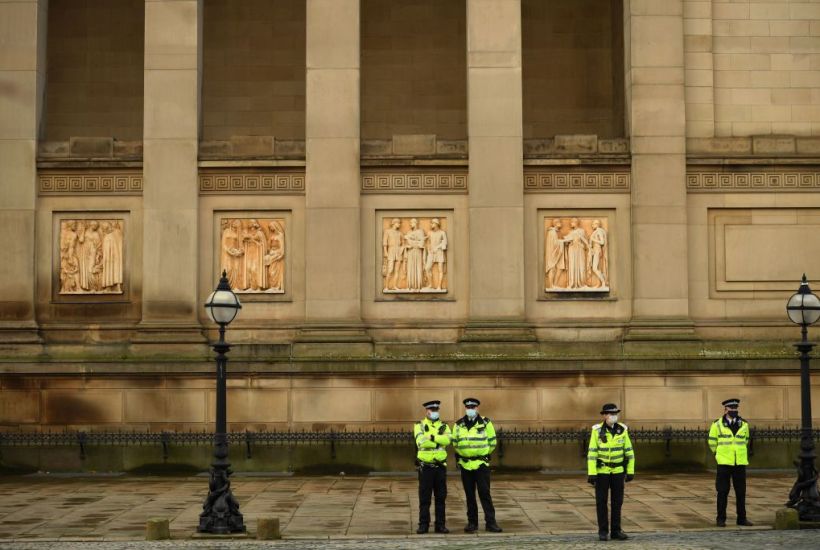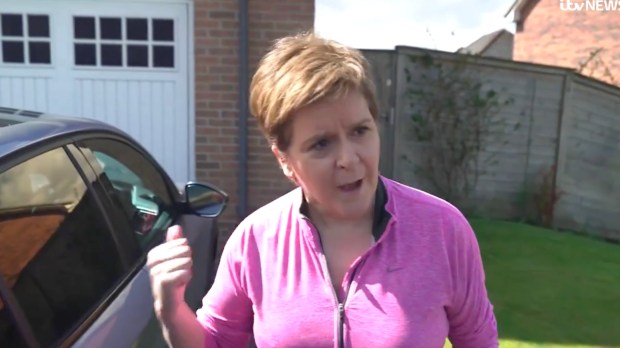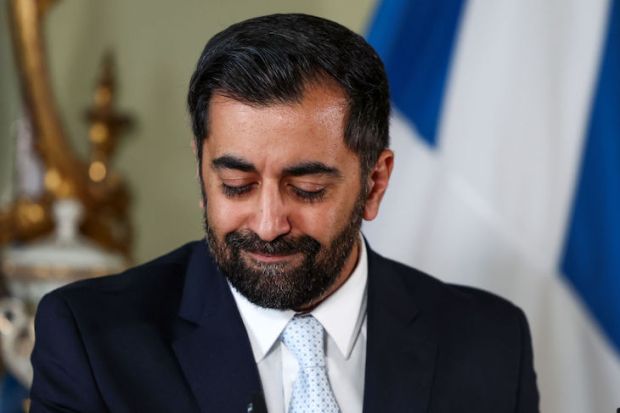Earlier this month I resigned as a Special Constable, after serving for ten years as a volunteer officer in three different police forces. Policing has been an important part of my life for a long time, and I will miss serving my community and working with extremely dedicated, brave, and caring officers. But I have long been disturbed by decisions made by the government during the coronavirus crisis, and have decided that I can no longer in good conscience play any part in enforcing the restrictions.
I have had concerns about the government’s coronavirus policies since the first lockdown. While I have volunteered as a Special Constable, my full-time job is as a scientific researcher, and I have long felt that lockdowns may cause more global harm than the virus.
But I am also worried about the impact that the government’s coronavirus restrictions are having on the police tasked with enforcing these regulations. I want to be very clear that the police, and in particular my previous force, are doing their best in incredibly difficult circumstances. Unfortunately, they are being instructed by the government to take a heavy handed and punitive approach to public health – based primarily on leveraging huge fines for non-compliance – that may ultimately damage public confidence in the police.
Since the beginning of the UK epidemic, the government has introduced a number of new measures and restrictions which it has claimed are highly certain to be effective. Over time though, it has become clear that there is not only debate amongst experts about the effectiveness of such measures, but about their wide-ranging harms. I believe that lockdowns are at best unnecessary, and at worst (and now increasingly likely) more damaging to long-term public health than the coronavirus. Eventually, as the public are slowly exposed to such counterarguments, the government runs the serious risk of undermining public confidence. This of course does not just reflect poorly on government – it is also damaging to the work of the police tasked with enforcing the restrictions, posing the very real risk of social unrest.
Many people who support the restrictions will argue that they are protecting the most vulnerable in society. But they forget the damage the restrictions are causing. Vulnerable people have been left behind – in March and April, thousands of patients were turfed out of hospitals without a Covid test. Too many died, in extreme pain, with some care homes unable to provide higher doses of pain killers at the end of life. Excess deaths due to dementia are also currently above the five-year average. Many care home residents have not seen their relatives for nine months, and any ‘visits’ have been by video call, or through a window, with masks obscuring communication. At the other end of the lifespan, children’s social and emotional development, health, and education have all been put at risk. The restrictions are having a disproportionate effect on disabled people; increasing anxiety and loneliness, and impeding access to healthcare. Autistic people, and people with learning disabilities, have been largely excluded by the constantly changing government guidance, leaving many confused and isolated.
![LOVEISNOTACRIME(300)[1].png](https://spectatorau.imgix.net/content/uploads/2020/11/LOVEISNOTACRIME_300_5B1_5D-scaled.png?auto=compress,enhance,format&crop=faces,entropy,edges&fit=crop&w=2560&h=1908) By Bob Moran
By Bob Moran
It has been left to the police to manage these restrictions that are causing so much misery. During the first lockdown, I spent around 30 hours each month in my policing role. I did not enjoy having to stop people enjoying a picnic on a bench spring, including, nonsensically, when they were all from the same household. There have also been more worrying cases of enforcement – in Manchester, a man received a fine for going to his mate’s for a cup of tea, and there have been increasing curbs on the right to protest. This shows how easily the current measures can lead to a creeping authoritarianism.
The unintended consequences of the regulations must not be ignored. Making the wearing of face coverings law, regardless of one’s view on their effectiveness, has led to some vulnerable people being excluded from society in order to avoid confrontation. Some say that those who are exempt should wear a badge. There are very important moral reasons why we must not force people to wear a symbol to indicate a protected characteristic. We ignore this at our peril.
I am very aware that I am in a privileged position compared to most officers – I have a full-time job, so resigning will not ‘cost’ me my income or career, as it would for a regular officer. But we should not be forcing any officers to enact these measures. Regulation after confusing regulation will only continue to foster fear, anger, and division. Instead, we should focus on providing people with accurate information on risk and mitigation, as well as working to prevent the physical and mental health impacts of lockdown, remembering the disproportionate impact restrictions are having on the most vulnerable.
Got something to add? Join the discussion and comment below.
Get 10 issues for just $10
Subscribe to The Spectator Australia today for the next 10 magazine issues, plus full online access, for just $10.




















Comments
Don't miss out
Join the conversation with other Spectator Australia readers. Subscribe to leave a comment.
SUBSCRIBEAlready a subscriber? Log in